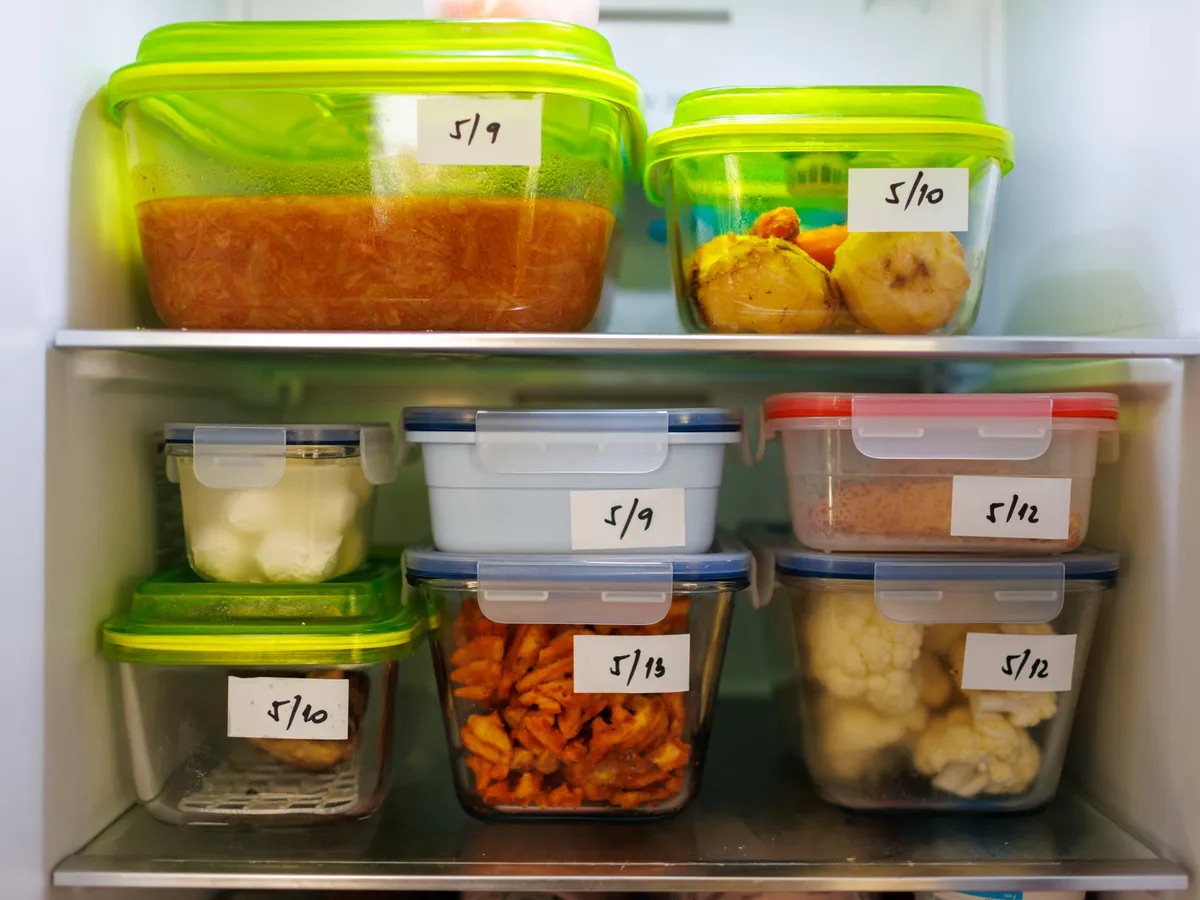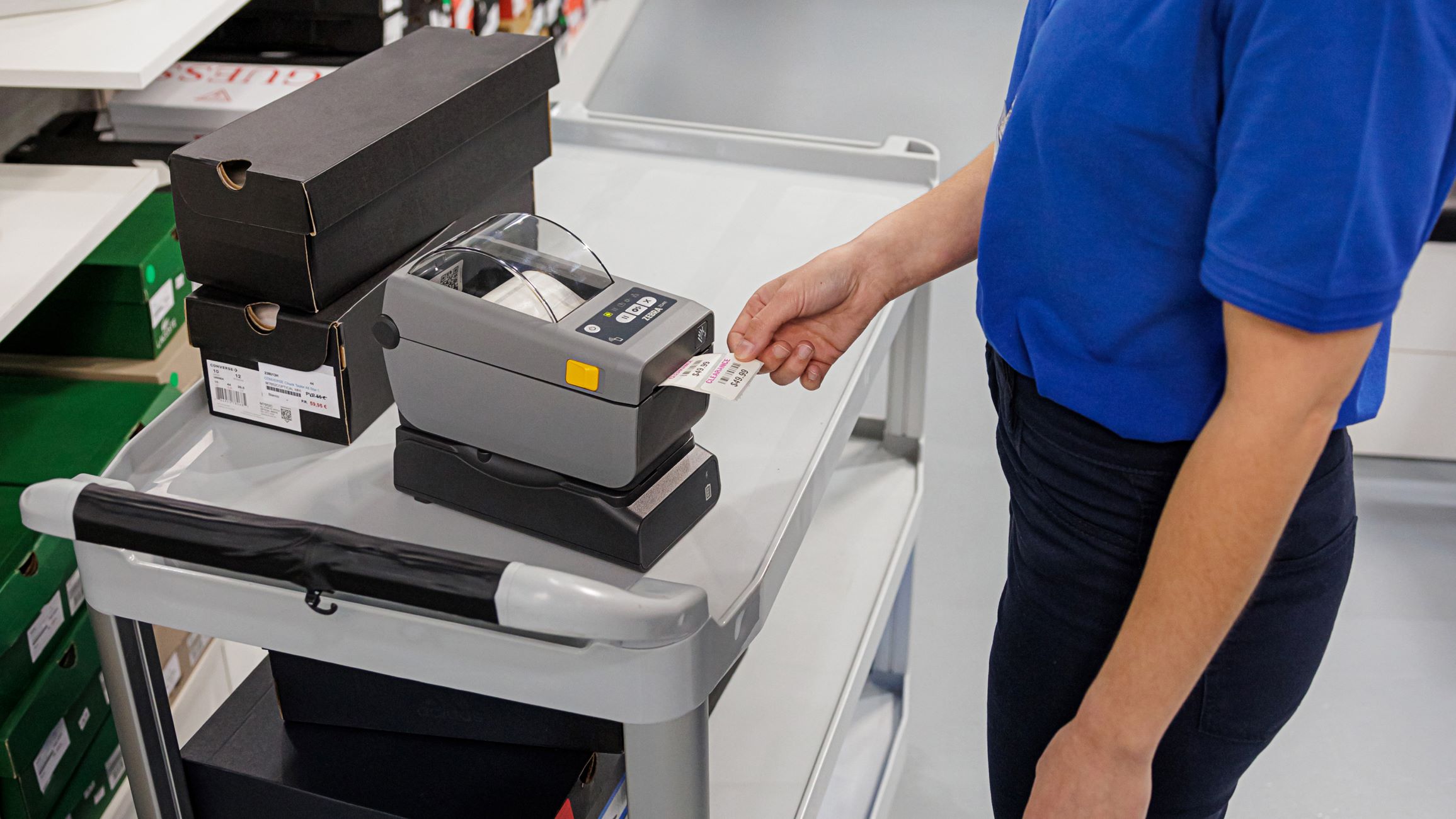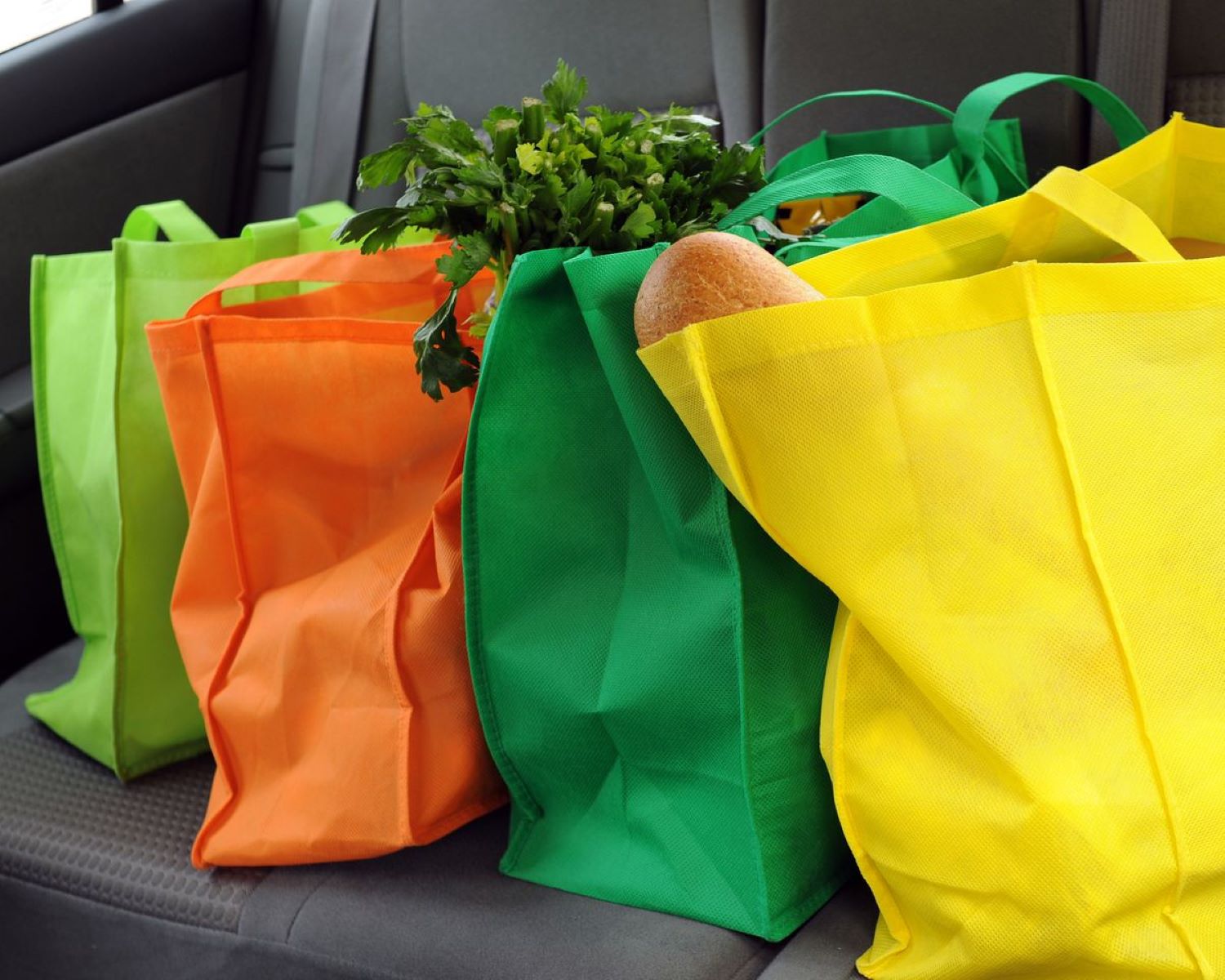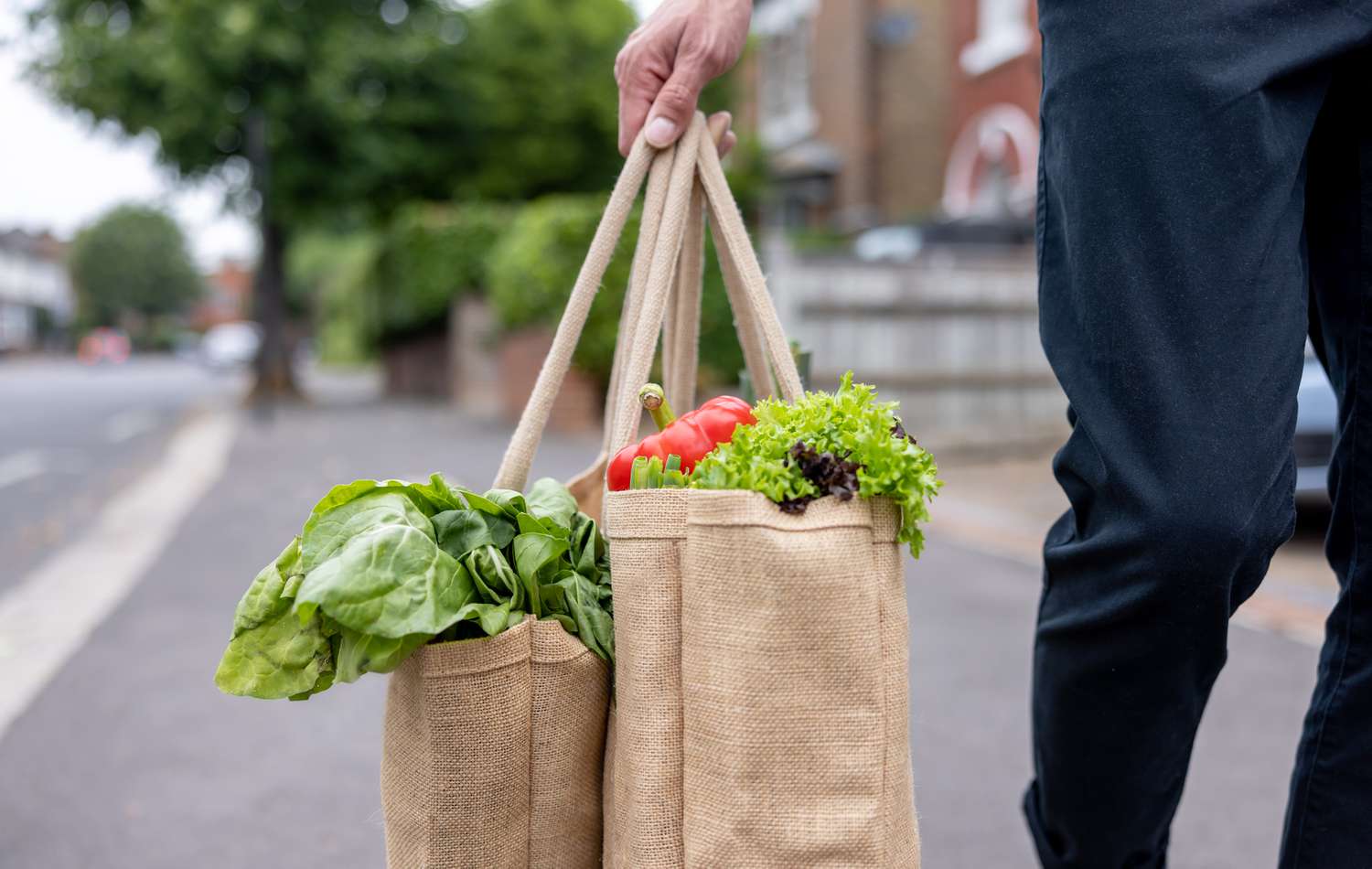Home>Interior Design>5 Food Storage Tricks To Extend The Life Of Your Groceries


Interior Design
5 Food Storage Tricks To Extend The Life Of Your Groceries
Modified: January 23, 2024
Discover 5 clever food storage tricks to keep your groceries fresher for longer. Make the most of your interior-design skills to extend the life of your pantry items and save money.
(Many of the links in this article redirect to a specific reviewed product. Your purchase of these products through affiliate links helps to generate commission for Storables.com, at no extra cost. Learn more)
Introduction
Proper food storage is essential to maximizing the lifespan of your groceries and reducing food waste. Whether you’re a culinary enthusiast or simply someone who wants to make sure their ingredients stay fresh, knowing the right techniques can make a significant difference. From fruits and vegetables to dairy products, meat, seafood, pantry staples, and herbs and spices, each category requires specific storage methods to preserve their quality and extend their shelf life.
In this article, we will explore five food storage tricks that will help you make the most out of your groceries. By following these tips, you can avoid unnecessary spoilage, save money, and ensure that your meals are always made with fresh ingredients. So let’s dive in and discover how to keep your food items at their best for longer periods.
Key Takeaways:
- Maximize the lifespan of your groceries and reduce food waste by implementing proper food storage techniques. From fruits and vegetables to dairy, meat, pantry staples, and herbs, these tips will help you keep your ingredients fresh and flavorful.
- By following these food storage tricks, you can enjoy longer-lasting groceries, save money, and contribute to a more sustainable kitchen. Embrace these practices to ensure your meals are made with high-quality, fresh ingredients.
Properly Storing Fruits and Vegetables
One key factor in extending the freshness of fruits and vegetables is proper storage. Here are some essential tips to keep in mind:
- Keeping fruits and vegetables in the fridge: Many fruits and vegetables benefit from being stored in the refrigerator to maintain their freshness. However, some fruits like bananas and tomatoes are best kept at room temperature as refrigeration can affect their taste and texture. It’s important to know which ones belong in the fridge and which ones don’t.
- Using breathable bags or containers: Fruits and vegetables need to breathe to stay fresh. Instead of sealing them in airtight plastic bags, opt for breathable bags or containers. These allow airflow and prevent moisture buildup, reducing the chances of spoilage.
- Separating ethylene-producing and ethylene-sensitive produce: Ethylene is a natural gas produced by certain fruits and vegetables that accelerates the ripening process. To prevent premature spoilage, keep ethylene-producing fruits like apples, avocados, and bananas separate from ethylene-sensitive produce like leafy greens and berries.
By following these storage practices, you can extend the life of your fruits and vegetables, ensuring that they remain fresh and flavorful.
Maximizing the Shelf Life of Dairy Products
Dairy products like milk, cheese, and yogurt are kitchen staples for many households. To ensure their freshness and longevity, consider the following tips:
- Checking expiration dates: Before purchasing dairy products, always check the expiration date to ensure that you’re buying the freshest options. In your fridge, prioritize using the products that are closest to their expiration dates first.
- Storing dairy products in the coldest part of the fridge: Dairy products are temperature-sensitive and need to be stored at a consistently cold temperature. Place them in the coldest part of your refrigerator, typically the back lower shelf or the dairy compartment, to maintain their freshness.
- Using airtight containers or wrapping: Dairy products can easily absorb odors from other foods in the fridge, which can affect their taste and quality. To prevent this, store them in airtight containers or wrap them tightly with plastic wrap or aluminum foil.
These simple practices can help prolong the shelf life of your dairy products, minimizing waste and ensuring that you always have fresh options for your meals and recipes.
Preserving Meat and Seafood
Meat and seafood are highly perishable items that require careful preservation to maintain their quality and prevent foodborne illnesses. Here are some essential tips for storing meat and seafood:
- Freezing meat and seafood properly: Freezing is an effective way to extend the shelf life of meat and seafood. Make sure to wrap them tightly in plastic wrap or place them in freezer bags to prevent freezer burn and maintain their texture. For longer storage periods, consider vacuum-sealing the meats or seafood.
- Using freezer-safe containers or bags: When freezing meat and seafood, always use containers or bags specifically designed for freezer use. These will help prevent freezer burn and keep the food airtight, preserving its flavor and quality. Make sure to remove excess air from the bags before sealing.
- Labeling and organizing frozen items: Maintain a well-organized freezer by labeling your frozen meat and seafood with the date of freezing. This ensures that you can easily identify and use the oldest items first. Additionally, try to keep similar items together for convenient and efficient meal planning.
By following these practices, you can safely store and preserve your meat and seafood, allowing you to have a stockpile of high-quality ingredients whenever you need them.
Store potatoes and onions separately in a cool, dark place to prevent them from sprouting or rotting quickly. This will help extend their shelf life.
Extending the Life of Pantry Staples
Pantry staples like grains, beans, pasta, and spices are essential ingredients in many recipes. To ensure their longevity and preserve their flavors, consider the following tips for storing pantry staples:
- Storing dry goods in airtight containers: When it comes to dry goods, moisture is the enemy. Transfer pantry staples into airtight containers to protect them from humidity and pests. Mason jars, storage canisters, or resealable bags are ideal options for keeping your staples fresh and free from contaminants.
- Avoiding exposure to heat and sunlight: Heat and sunlight can degrade the quality of pantry staples. Store them in a cool, dark place away from direct sunlight and heat sources like stoves and ovens. This will help maintain their texture, flavor, and nutritional value.
- Checking for signs of spoilage or pests regularly: Regularly inspect your pantry staples for any signs of spoilage, such as mold, foul odors, or insect infestations. Discard any items that show signs of deterioration. Additionally, consider using pantry moth traps to prevent moth larvae from infesting your dry goods.
By storing pantry staples properly and regularly monitoring their condition, you can ensure that they stay fresh and usable for a long time, reducing waste and saving money.
Keeping Herbs and Spices Fresh for Longer
Herbs and spices are essential for adding flavor and aroma to dishes. To maintain the freshness and potency of your herbs and spices, follow these tips:
- Storing herbs and spices in a cool, dark place: Herbs and spices are sensitive to light, heat, and moisture, which can cause them to lose their flavor and potency. Store them in a cool, dark place, such as a pantry or a cabinet away from the stove, to protect them from these elements.
- Using airtight containers or spice jars: Exposure to air can cause herbs and spices to lose their flavor more quickly. Transfer them to airtight containers or spice jars to maintain their freshness. Make sure the containers are clean and dry before filling them to prevent contamination.
- Properly cleaning and drying herbs before storage: Before storing fresh herbs, ensure that they are clean and completely dry. Pat them gently with a paper towel or use a salad spinner to remove excess moisture. Store fresh herbs by wrapping them loosely in a damp paper towel and placing them in a resealable bag in the refrigerator. Alternatively, you can dry the herbs by hanging them upside down in a well-ventilated area until they are completely dry.
By following these practices, you can keep your herbs and spices flavorful and aromatic for longer periods, enhancing the taste of your dishes and reducing the need for frequent restocking.
Conclusion
Proper food storage is the key to maximizing the lifespan of your groceries and minimizing waste. By implementing the tips and tricks outlined in this article, you can extend the freshness of various food items, saving money and ensuring that your meals are made with high-quality ingredients.
When storing fruits and vegetables, remember to keep them in the fridge, use breathable bags or containers, and separate ethylene-producing and ethylene-sensitive produce. For dairy products, check expiration dates, store them in the coldest part of the fridge, and use airtight containers or wrapping. Preserving meat and seafood involves proper freezing, using freezer-safe containers or bags, and labeling and organizing frozen items. Pantry staples can be kept fresh by storing them in airtight containers, avoiding exposure to heat and sunlight, and regularly checking for signs of spoilage or pests. Finally, to keep herbs and spices fresh, store them in a cool, dark place, use airtight containers or spice jars, and properly clean and dry them before storage.
Remember, implementing these storage techniques not only helps in reducing food waste but also ensures that you have fresh and flavorful ingredients whenever you need them. Take the time to organize your fridge, pantry, and spice rack, and make it a habit to regularly check the condition of your stored food items.
By following these food storage tricks, you can enjoy the benefits of longer-lasting groceries and contribute to a more sustainable and efficient kitchen. Let’s embrace these practices and make the most out of our ingredients, creating delicious meals while minimizing waste. Happy storage and cooking!
Frequently Asked Questions about 5 Food Storage Tricks To Extend The Life Of Your Groceries
Was this page helpful?
At Storables.com, we guarantee accurate and reliable information. Our content, validated by Expert Board Contributors, is crafted following stringent Editorial Policies. We're committed to providing you with well-researched, expert-backed insights for all your informational needs.















0 thoughts on “5 Food Storage Tricks To Extend The Life Of Your Groceries”